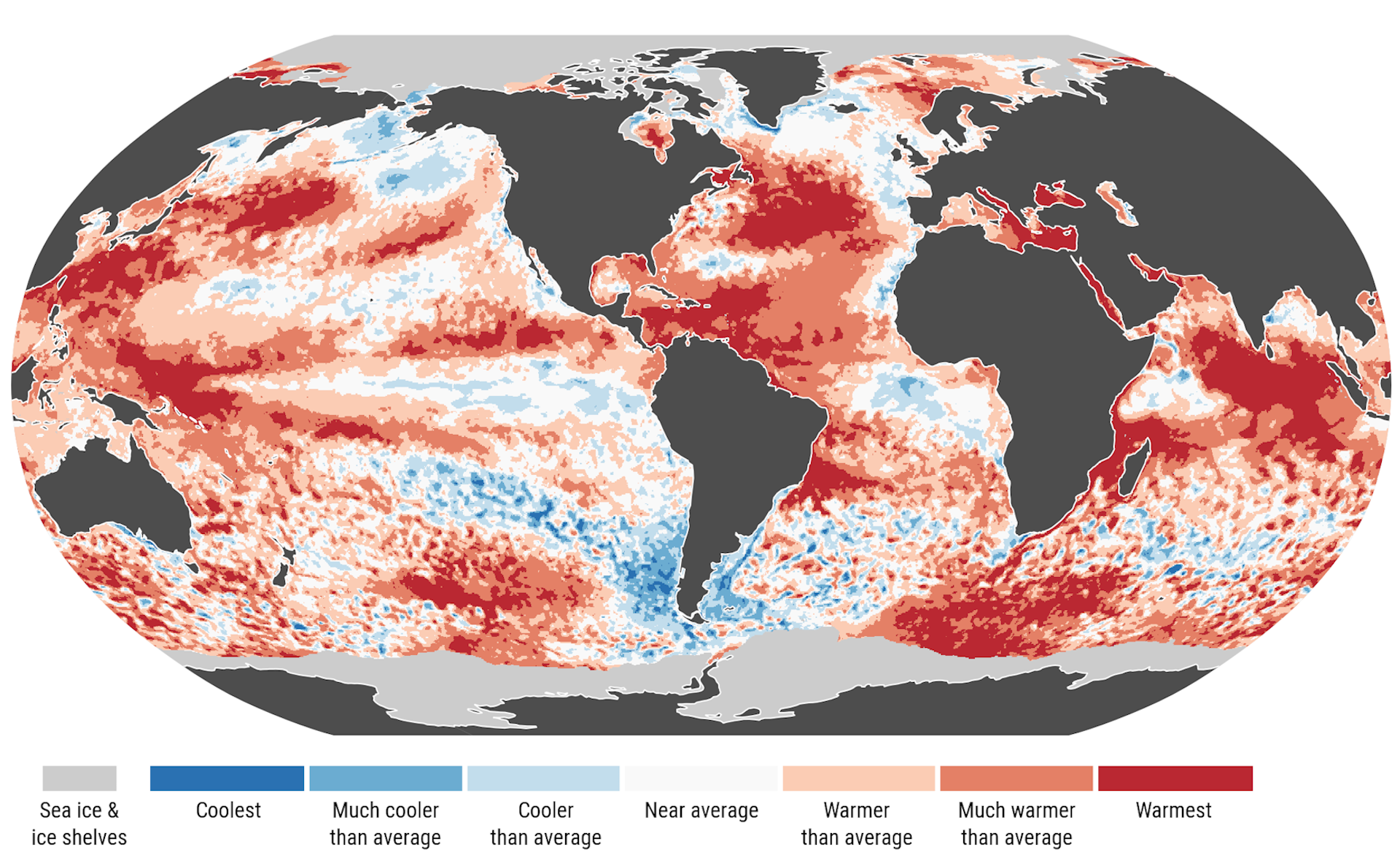photo Athletes and spectators suffer from extreme heat Paris took over the Olympics in the news last week. 30 degree day in the French capital It reached 35 degrees Celsius.This comes in the wake of a heat wave that hit Western Europe and the Mediterranean. The scenario is a small sample of the record temperatures recorded in several countries in July, which, According to the European Copernicus Observatoryhas already seen the two hottest days on record. July was the second hottest month on record, behind July 2023.
Last week, Olympic sailors competed in snow jackets to try to keep cool, while water cannons sprayed fans watching beach volleyball matches. A study showed According to the World Wide Web (WWA), the heatwave that hit the Mediterranean would have been impossible without climate change caused by human activities.
The study, published on July 31, noted that extreme heat events like the one recorded in July in the Mediterranean – which hit Morocco and killed 21 people, as well as Greece, Spain, Italy, Portugal and France – are no longer happening. They are much rarer, and should occur at least once every decade under the current climate (1.3 degrees Celsius warmer than the pre-industrial average from 1850 to 1900). The analysis found that without climate change, the temperature during the heatwave would have been about 3 degrees Celsius lower.
Released this Thursday (8) Climate Observatory Data The European Union’s Copernicus confirmed that the average air temperature near the Earth’s surface in July 2024 was 16.91°C. That’s just 0.04°C lower than the average for July 2023, the hottest month on record, and makes last month the second-hottest month on record. The June 2024 data ends a streak of 13 consecutive months with the hottest temperatures ever recorded for each monthly average.
The July temperature of 16.91°C left the month’s average 0.68°C above the 1991–2020 monthly average and 1.48°C above the pre-industrial (1850–1900) monthly average. Although we’re behind 2023, it’s worth noting that its summer, which was intensified by climate change, was enhanced by the El Niño phenomenon, which No longer registered In June this year, 2024 recorded the two hottest days in modern history. The global average temperatures on July 22 and 23 were 17.16°C and 17.15°C, respectively, beating the record set just one day earlier (17.09°C, on July 21) as well as the current record set on July 6, 2023 (17.08°C).
Between August 2023 and July 2024, the global average temperature was 1.64°C above the pre-industrial average and 0.76°C above the average of the past 30 years (1991–2020). According to Copernicus, 2024 is likely to be warmer than 2023, even if the average July temperature is lower: “The global temperature anomaly for the year to date (January–July) is 0.70°C above the 1991–2020 average, which is 0.27°C warmer than the same period in 2023. The average anomaly for the remaining months of the year would need to fall by at least 0.23°C for 2024 to be no hotter than 2023. The statement says From the observatory.
The ocean surface temperature in July reached 20.88 degrees Celsius, the second highest value for the month. This was only 0.01 degrees Celsius behind July 2023. [oceano] “The tropical Pacific recorded below-average temperatures, indicating a developing La Nina phenomenon, but air temperatures over the ocean remained abnormally high in several regions,” Copernicus said.
Wednesday (7). World Meteorological Organization The WMO also provided an overview of July’s high temperatures with information for some countries. “Extreme heat affected hundreds of millions of people throughout July, having a domino effect across society,” the statement read. Japan recorded its highest average monthly temperature for July since 1898, when records began. The thermometer was 2.16 degrees Celsius (4.7 degrees Fahrenheit) above the country’s 1991-2020 July average, beating the 2023 record. Japan Meteorological AgencyThe intense heat is expected to continue until August.
China, with data dating back to 1961, and Bahrain, with records dating back to 1902, also experienced their hottest July on record. Bahrain recorded an average temperature of 2.3°C higher during the month. In India, last month was the second-warmest July in records dating back to 1901. On the other hand, nighttime minimum temperatures were the highest on record. In South America, where winter is coming, some countries experienced summer-like temperatures. Thermometers recorded temperatures above 30°C, and even above 35°C, in areas of Brazil, Bolivia, Paraguay, Uruguay and Argentina.
As recently highlighted In the interview According to leading climate scientist Carlos Nobre, the unprecedented heat is building beyond what climate models predicted. The persistence of high temperatures even after the end of El Niño—which alone would not explain these record-breaking numbers—presents humanity with a new scenario, one of rising temperatures that is still unexplained by current models.
Nobre's warning is in the same direction as that predicted by British climate scientist Gavin Schmidt, head of NASA's Goddard Center for Space Studies, in 2016. Opinion article Published in the scientific journal nature In January of this year, discussing the record heat of 2023, Schmidt noted that neither the influence of any known factors—such as volcanic eruptions or a decrease in aerosols, pollutants that temporarily lower temperatures by blocking solar radiation—nor any combination of these factors would be enough to explain the very high temperatures, especially in the oceans, even before El Niño.
For climate scientists, the moment of truth will be precisely the second half of 2024, after the phenomenon has passed: if the climate does not stabilize from August this year, the hypothesis will be that the world will enter “uncharted territory,” with the climate crisis forcing the climate system to operate in a radically different way than previously known. Data from last month, and continued high temperatures in August in several regions of the planet – such as In Asia and North America – It seems to support this hypothesis.

“Wannabe internet buff. Future teen idol. Hardcore zombie guru. Gamer. Avid creator. Entrepreneur. Bacon ninja.”



